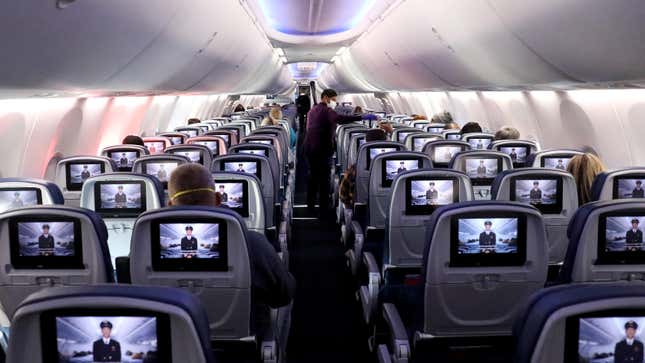
Whether it’s because a child started crying or the pilot didn’t feel it was safe to turn off the seatbelt sign, airline passengers will complain about pretty much anything these days. Recently on Twitter, a Delta passenger complained they’d seen flight attendants wearing Palestinian flag pins on their uniforms, posting a photo of the attendants and calling them “Hamas badges.” Unfortunately for Delta, someone on its social media team responded from the official Twitter account saying they’d “be terrified as well.” The post has since been deleted, but not before it went viral, forcing Delta to apologize, the Washington Post reports.
“I hear you as I’d be terrified as well, personally,” Delta’s reply read. “Our employees reflect our culture and we do not take it lightly when our policy is not being followed.” As a Delta spokesperson told the Post, though, that response “was not in line with our values and our mission.” They also said the employee responsible for the reply “has been counseled and no longer supports Delta’s social channels,” although it still isn’t clear if they were fired or not.
While Delta policy did allow crew members to wear pins representing other countries, the airline has since changed that policy in response to this incident. Going forward, only American flag pins will be allowed. This change in policy has, understandably, upset Palestinian activists and others on social media who are tired of being accused of supporting Hamas simply because they don’t want more Palestinian civilians to die.
While Hamas is responsible for the October 7 attack that killed about 1,100 people, Israel’s response has been far from proportionate. Since the attack, it has killed at least 38,000 Palestinians, many of whom were women and children, and injured more than 88,000. It has also indiscriminately attacked hospitals, schools and even aid workers with Chef José Andrés’s World Central Kitchen. Just two days ago, Israel bombed another school, killing 30 and wounding 53.
For months, people have been calling for a ceasefire, from United Nations officials down to even the UAW, a decision that led the union’s federal monitor to pressure the union into backing down.

